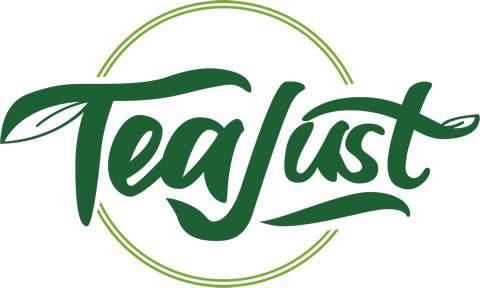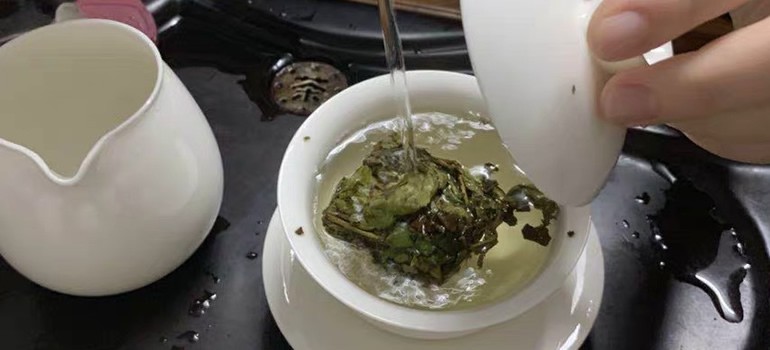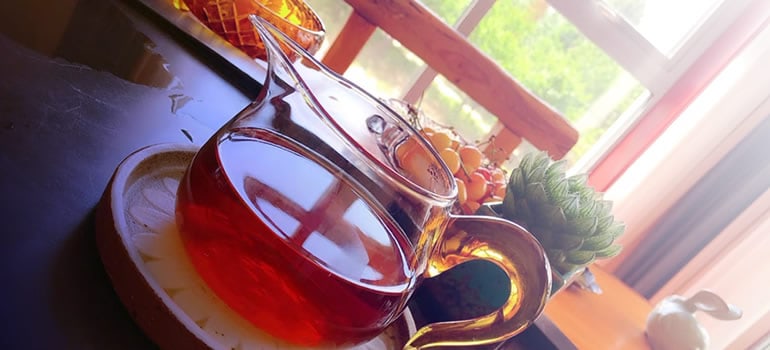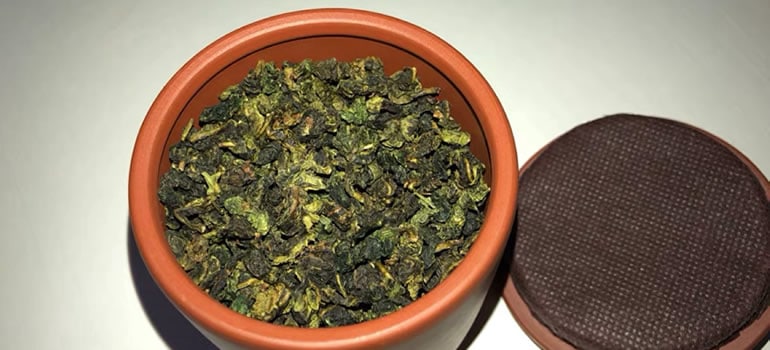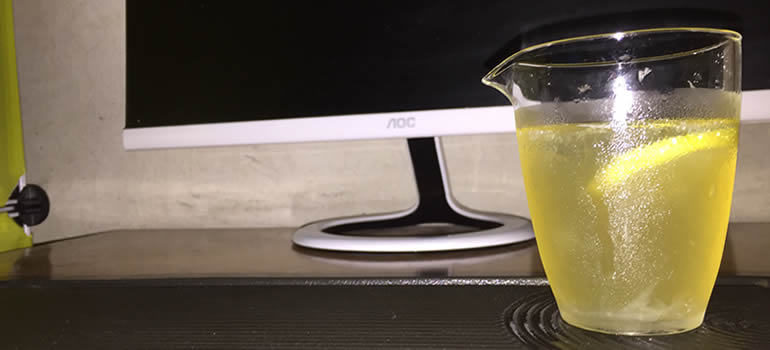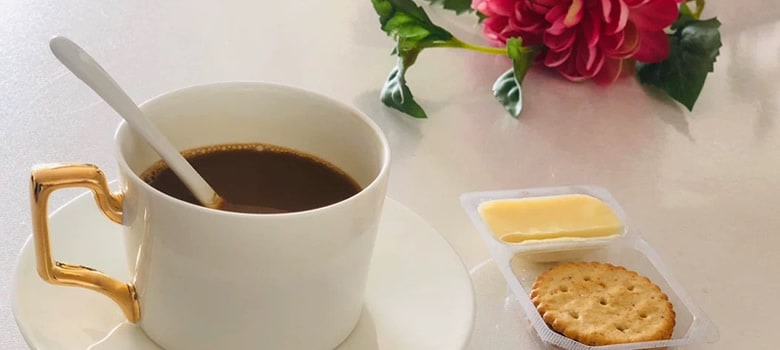
Both tea and hot chocolate are widely consumed hot beverages and they are loved by many.
If you are reading this article, you may be wondering if there are any interesting differences between the two? Are they really that different, or the looks, indeed, are deceiving?
Not long ago, I was wondering the same thing. So I decided to do a little research and see what I will find.
There are so many things about both of these drinks that make them unique in more ways than one. But at the same time, this may be very superficial.
Below I will go more in-depth at what are the unique differences between tea and hot chocolate.
1. Different History
Which one do you think was discovered first? Hot chocolate or tea?
Well, if you guessed tea, then you guessed right.
Tea has been consumed and prepared by humans for more than 4000 years. The earliest evidence of people preparing and drinking tea dates back to the 2nd century B.C.
There are even several legends surrounding the discovery of tea. One of which is about Shennong, the Emperor of China.
The story goes that as he was brewing some water, a few leaves fell into it.
The pleasant aroma and the new color of the water intrigued him, and he tasted it. The new drink had an interesting flavor and therapeutic properties, which he found interesting.
So if we can date, somewhat reliably, that tea has been consumed since the 2nd century B.C. when do you think we first started drinking hot chocolate?
And who discovered it?
I will give you a few minutes to think about it. I am sure it will be the last thing to come to your mind!
I will give you a hint. It started in North America!
Are you ready?
It all started in the territory of today’s Mexico, but more than 2500 years ago.
Hot cocoa definitely has a ‘shorter’ history, compared to tea. Mayans were the first to start drinking chocolate somewhere in 500 B.C. Conversely, traces of chocolate have been discovered by archaeologists which date back to 1700 B.C.
What the people back then would do is grind the cocoa seeds mix them with water, chili peppers, cornmeal, and a few other ingredients and then drink the mixture cold.
Around 1400 AD, it became a very important drink for the Aztec culture.
Later, when that cocoa beverage was brought to Europe in the 1500s, it started gaining even more popularity, especially within the royal families and the upper class.
Right about that time is when people started drinking it hot, and thus the hot chocolate we know today was created.
As you can see, both drinks are surprisingly old and with a very long history.
2. Different Production
There is a lot of different production and processing methods tea goes through.
As you know, there are different types of tea, like green tea, black tea, white tea, etc. But did you know that all of these (and a few others) are all created from the leaves of the same plant – the Camellia sinensis plant?
The thing that turns them into a certain type of tea is the processing method that is being used.
Tea goes through a number of different processing methods like harvesting, wilting, disruption, oxidation, fixation, rolling, and drying. All of these and the total amount of oxidation and fermentation can ultimately change the taste, content, and aroma of the tea.
Other types of tea are made from herbs and spices. These are known as herbal teas or tisanes. And there are also fruity teas made from dried fruits.
Hot chocolate, on the other hand, is produced from cacao beans, which are the seeds of the cacao tree.
The cacao beans go through a process of fermentation, drying, cleaning, and roasting.
Then, the bean’s shell is removed, leaving just the cacao nibs, which are then ground into a thick cacao paste.
This cacao paste needs to go through a few more processes like conching, blending, and tempering before it becomes a real chocolate.
Hot chocolate and hot cocoa are frequently used interchangeably. However, sometimes, there is a distinction between the two.
In the production of hot cocoa, cocoa butter is removed from the cacao beans, and after the dried solids are ground, we end up with cacao powder.
Frequently hot cocoa refers to a hot beverage made with hot water and cocoa powder.
While in comparison, hot chocolate refers to a beverage made from small grated pieces of chocolate or powdered chocolate.
Although both drinks will retain relatively the same antioxidants, which chocolate contains, hot cocoa is much lower in fat.
3. Different Consumption
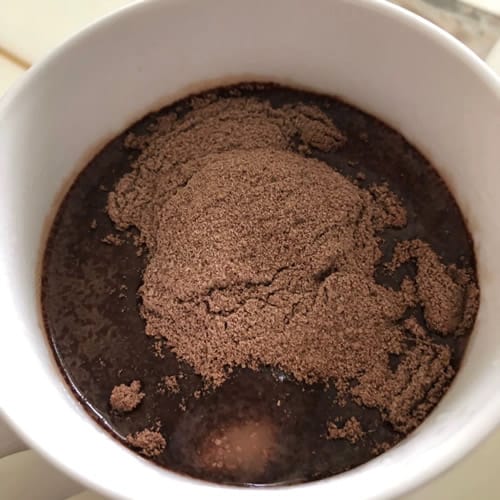
When you think about hot chocolate, what is the first thing that pops-up into your mind?
I can tell you what comes to my mind; winter, snowy sidewalks, warm fireplaces, and family gatherings.
There is something about hot chocolate that is making it an all-time favorite for many during winter.
But hot chocolate stands no chance against tea.
Tea is hands down one of the most widely consumed beverages in the world. And on average statistics show that about 50% of the Americans drink tea.
But I found some very interesting data (from recent research conducted in Australia) about the consumption of tea and hot chocolate, especially when we take into account the different generations.
This is what experts found:
- There is an interesting downward trend when it comes to tea consumption (and coffee as well!);
- However, in contrast, hot chocolate consumption seems to be on the rise;
- Compared to hot chocolate, tea appears to be more popular with the older generations born before 1990.
- While with the newer generations born after 1991, tea consumption seems to drop significantly down while the hot chocolate consumption increases drastically.
As you can see, there are some interesting and unexpected trends here.
Also, tea is one of the fastest-growing beverages both production and market-wise. It maintains an average annual growth of about 2.8%, and it is only expected to grow even more.
Hot chocolate and cocoa production have been growing at much slower rates of about 0.5 to 1.3% for the past several years.
But that is to be expected. After all, hot chocolate has been considered more of a children’s drink than anything else.
4. Different Nutritional Content
Because tea is prepared from leaves and hot chocolate from cocoa beans, it is only natural for these two beverages to also differ in their nutrient values and content.
Caloric Content in Hot Chocolate vs. Tea
If you are calorie-conscious and trying to cut down on your calories, you will be pleasantly surprised by tea.
The average cup of tea will contain about 2 Calories.
Of course, adding sugar or milk to your tea will increase the caloric content significantly: one teaspoon of sugar will add 16 Calories, honey – 12 Calories, and whole milk – 2.5 Calories.
Hot chocolate, on the other hand, is going to have a lot more calories. After all, it is made from chocolate, and, unfortunately, chocolate is not known for its low calories.
Depending on how much cocoa powder there is in your cup of hot chocolate, the calories can and will vary a lot.
On average, you can expect there to be between 80 to more than 250 Calories in a single cup of hot chocolate.
Macronutrients in Tea and Hot Chocolate
Hot chocolate is, on average, a lot more calorie and macronutrient-dense. A standard hot cocoa cup will contain about:
- Proteins: 8.8 grams;
- Carbohydrates: 26.7 grams;
- Fat: 5.8 grams;
In comparison, a standard cup of black tea will be a lot more ‘humble’:
- Proteins: 0.0 grams;
- Carbohydrates: 0.7 grams;
- Fat: 0.0 grams;
Mineral Vitamin Content
With all that being said, you can expect there to be a huge difference in terms of mineral and vitamin content between hot chocolate and tea.
And this is absolutely true.
Hot chocolate contains a vast array of different minerals and vitamins such as:
- Vitamin A, C, D, E, K, B1, B2, B3, B5, B6, B9, and B12;
- Calcium, Iron, Magnesium, Phosphorus, Potassium, Zinc, Copper, Sodium, and Selenium;
Black tea, however, is a bit more nutrient-shy. And the average cup contains:
- Vitamin B2 and B9;
- Magnesium, Phosphorus, Potassium, Sodium, Copper, Manganese, and Fluoride.
Caffeine Content in Tea and Hot Chocolate
Tea may have several times more caffeine than hot chocolate. You may not really be surprised by that fact. But interestingly enough, hot chocolate does have caffeine in it as well.
Let us explore the caffeine content in tea. Many of us may not expect the real potency tea can have on improving our energy levels and concentration.
The different types of tea can have varying amounts of caffeine. So let’s take a look at the caffeine found in the most commonly consumed teas:
Black tea has one of the highest caffeine contents out of all teas. The caffeine in black tea can vary anywhere between 25 to 75 mg per standard 8-oz cup of tea. But the average caffeine content of black tea is usually about 47.4 mg.
Pu-erh tea definitely gives black tea a run for its money as it too tends to have very high caffeine content. It can be anywhere between 60 to 70 mg per standard 8-oz cup of tea.
Hot chocolate, as I mentioned earlier, does contain caffeine, too. So besides providing us with a warm and cozy feelings, hot chocolate can give us quite a boost, too.
The caffeine content found it hot chocolate can safely be considered a lot less compared to the black tea.
But how much caffeine does hot chocolate have exactly?
The caffeine we can expect to find in our hot chocolate can vary between 5 to 25 mg, depending on the preparation methods used, and where you get it from.
Iron Content in Hot Chocolate vs. Tea
Cocoa is considered an excellent source of iron. A standard cup of hot chocolate can contain from 0.4 to 1.2 mg, which is between 2 to 7% of the daily RDI.
This is making hot chocolate probably one of the best beverages for people with iron deficiency (or anemia).
Tea, on the other hand, is a bit of a tricky subject.
Although tea can be a source of many different nutrients and compounds, it could potentially cause iron deficiency anemia if consumed in high quantities.
The tannins which are found in tea can bind to the non-heme iron in your system, making iron unavailable to your body.
The non-heme iron comes from plant sources, while the heme iron is derived from animal foods. And thus, this is making vegetarians and vegans a little more susceptible to iron deficiency if they are consuming too much tea.
This is why tea usually should not be consumed with a meal rather twenty or thirty minutes after or before it.
For example, drinking tea at the same time you consume your meal can cut the iron absorbed by your body by as much as fifty percent.
Antioxidant Content in Hot Chocolate vs. Tea
Tea is a great source of different antioxidants. The main ones found in black tea, for example, are theaflavins, catechins, and thearubigins.
Hot chocolate is a very rich source of antioxidants too. In fact, according to the experts from Cornell University, cocoa contains as much as three times the antioxidants found in tea.
The flavonoids found in tea and hot chocolate are naturally occurring plant pigments.
A word of caution, though. Not all hot chocolates are the same. Beverages with a higher percentage of cocoa that have gone through as little processing as possible are the preferred option.
The lower the chocolate percentage and the more processed your cup of hot chocolate is, the fewer antioxidants there will be.
5. Different Taste and Smell
Tea’s flavor and aroma qualities can vary significantly from tea variety to a tea variety.
The taste of tea can vary from very mild and light-bodied to very strong-bodied. From sweet, floral, grassy to very bitter, earthy, and malty.
In comparison, the taste of hot chocolate is very rich, vibrant, creamy, and chocolatey.
6. Different Health Benefits
The health benefits of drinking tea are truly staggering. But can hot chocolate compete with it? Let us find out.
Health Benefits of Tea
The L-theanine found in tea, which is a potent antioxidant and an amino acid, can improve your brain function. It can also stimulate the alpha waves in the brain that can aid you in relaxing and reducing stress.
The combination of L-theanine and caffeine has been shown to have a powerful effect on improving and maintaining better focus, alertness, and attention. Best of all, you will not be experiencing the energy crash associated with drinking coffee.
Tea can be a much better option for aiding your weight loss compared to hot chocolate. The polyphenols and caffeine in tea may help with weight management by inhibiting the fat gain and increasing the metabolism rates.
Tea can also potentially reduce the risk of cardiovascular disease and lower LDL cholesterol.
Health Benefits of Hot Chocolate
Drinking hot chocolate has been found to improve brain function and memory. Several studies have found potential in enhancing the blood flow to the brain, increasing brain function and memory abilities.
Hot chocolate also boosts your mood.
Chocolate has been known to increase the production of endorphins, which improve and elevate your mood and lower the symptoms of depression.
Hot chocolate can reduce the chances of cardiovascular disease.
With all that being said, it may sound very strange that cocoa can actually improve the heart health.
The polyphenols are also known to stimulate blood flow, reduce inflammation, and even lower blood pressure.
The European Food Information Council has stated that the flavanols in cocoa can go a long way in reducing LDL cholesterol, lowering the blood clotting and more.
Resources:
http://www.healthcommunities.com/healthy-drinks/does-tea-cause-iron-deficiency_ucbwl.shtml
http://news.cornell.edu/stories/2003/11/cocoa-froths-cancer-preventing-compounds
http://www.teausa.com/14655/tea-fact-sheet
